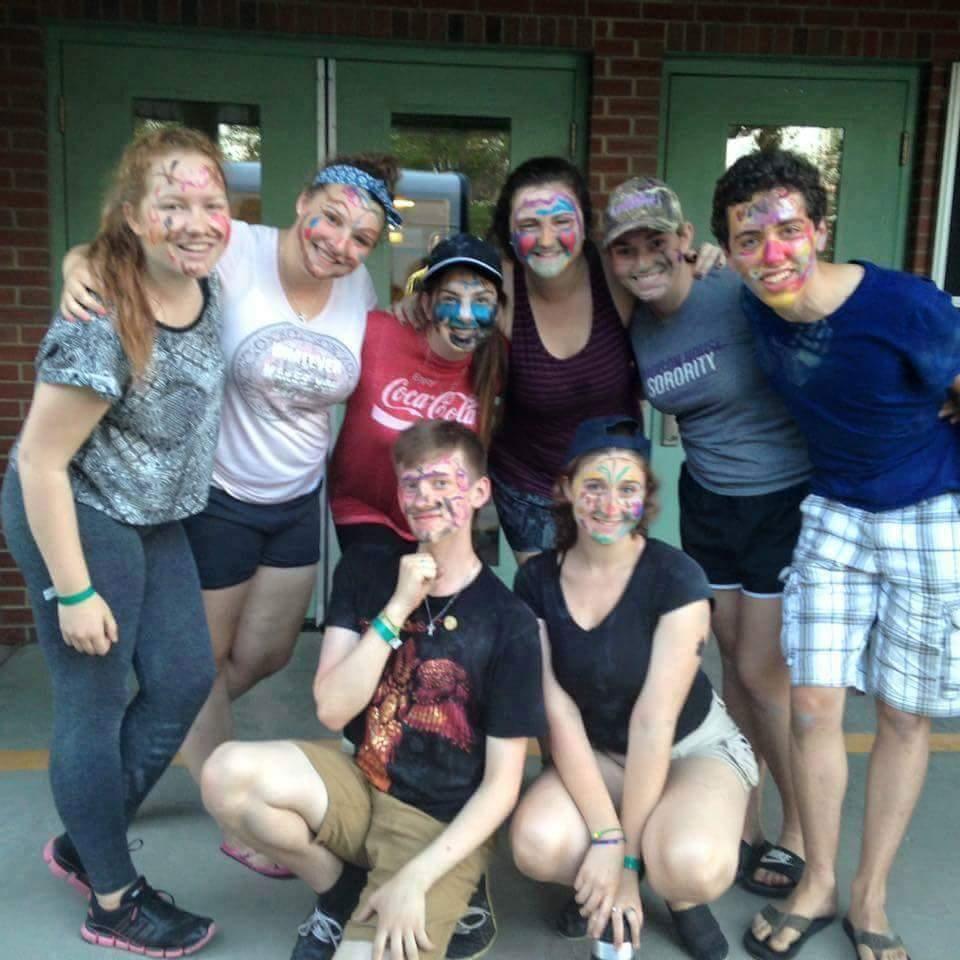Thirteen youth and two adults traveled across Canada this summer to learn about the social justice, ecumenical, and environmental work of the United Church of Canada. Travelling by planes, trains and automobiles for six weeks, fifteen strangers turned into a family.
In Vancouver, the first stop, a large impact was made on us by First United in the lower east side. This neighbourhood is one of the poorest in all of Canada. First United is a United church that has been converted to fit the needs of the community.
It no longer hosts Sunday morning services, but instead has small worship circles daily. They also work as a shelter providing beds, food, services and storage for those without a home. First United taught us the importance of a community and as well as the importance of a human life. They challenged us with tough questions and showed us what it can mean to be the hands and feet of Jesus Christ.
Next we came to Fort McMurray, Alberta a community largely dependent on the oil industry. After seeing the impact of the oil sands first hand, as well as learning more from local Aboriginals who have been affected, we found it nearly impossible to support such an industry.
During the national meeting of the United Church at the end of our pilgrimage, it was decided to divest the money we have in the oil industry. This makes a huge direct impact on many of our members, however is necessary in taking a stand on what we believe as a church, "to live with respect in creation."
Continuing through the Canadian prairies we landed in Saskatoon, Saskatchewan. One of the biggest impacts made during that leg of the journey was on a rest day. In the western provinces of Canada there had been horrible forest fires that forced people to evacuate homes and communities.
Many of those families went to Saskatoon and stayed in the soccer centers there for refuge. Some of us pilgrims decided to volunteer one evening and play with the children that were staying there. Knowing how difficult it must be for them to fall asleep in an unfamiliar place, we thought making them run around and play outside before bed might help tire them out.
Our final stop in western Canada was Winnipeg, Manitoba where our eyes, ears and hearts were opened to finding justice and peace in the world. We went to the Sandy-Sauteaux Aboriginal learning facility and had a conversation about the road to reconciliation and right relations. We heard teachings on the medicine wheel and the importance of tobacco.
On our second day in Winnipeg we attended a presentation at an immigration center and learned about the many refugees that the United Church of Canada sponsors. The following afternoon we went to the newly opened human rights museum and reflected on how far the world has come throughout history.
In Ontario we made four different stops: Sudbury, Paris, Toronto and Kingston. Sudbury is another mining town. We learned about the environmental impact of that mine, as well as the importance of clean water. In Paris, Ontario we had the privilege of visiting two summer camps where we talked about the United Church, as well as learned about what makes camp special.
One of my favourite days of the summer was in Toronto when we spent the day in the main offices of the United Church of Canada being a part of meetings and presentations. We learned about all aspects of our national church and the efforts being put towards seeking justice. While in Kingston we focused a lot on Affirm United and being welcoming to the LGBT (lesbian, gay, bisexual, and transgender) community.
In Montreal, Quebec we visited a few Catholic prayer sites and learned about the ecumenical work of the United Church of Canada. Following that we continued east to Miramichi, New Brunswick. There we learned about mining by fracking. We also learned about Aboriginal beliefs and practices.
Finally we made it to Cornerbrook, Newfoundland where we stayed for a week and a half of meetings. These meetings were composed of commissioners and delegates from across Canada to discuss the politics of the United Church of Canada. Here decisions to live in right relations, to seek justice, and to respect creation were made.
Throughout my six week journey as a pilgrim, I learned so much about myself, the world and about God. It suddenly seems much more urgent to create peace and justice in the world, but it also feels like an easier goal to achieve now.
Community is key. One person can make a difference, but many can change the world.






